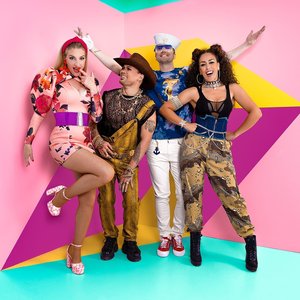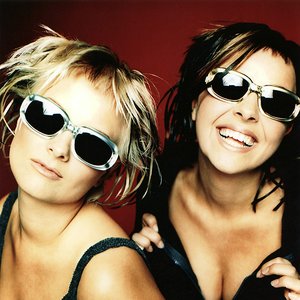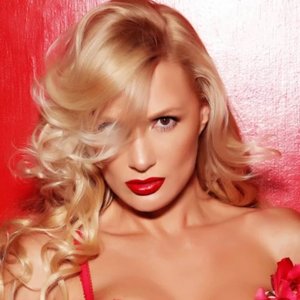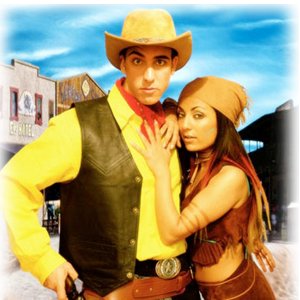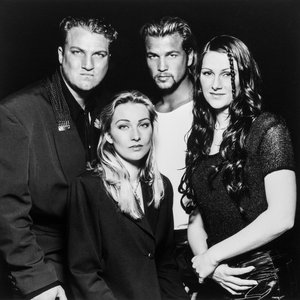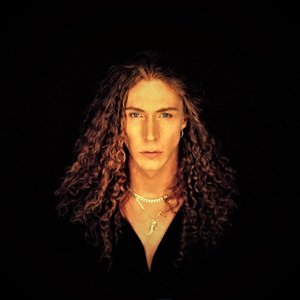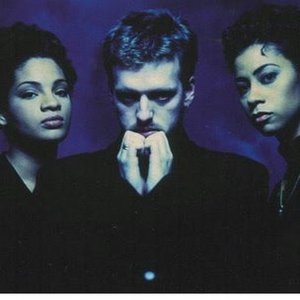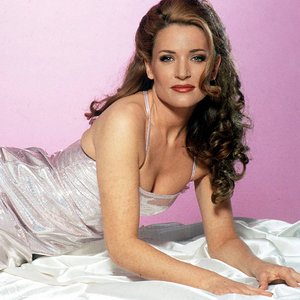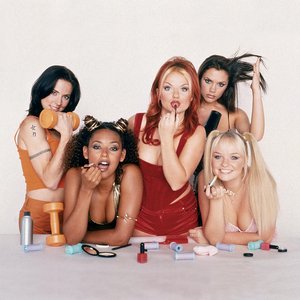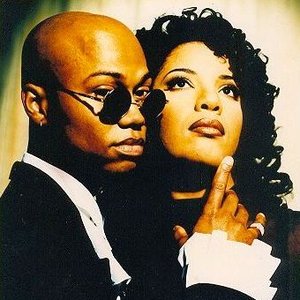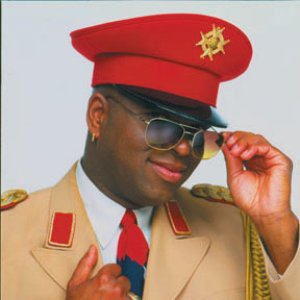Biyografi
Aqua is a Danish-Norwegian dance-pop group, best known for their 1997 breakthrough single "Barbie Girl". The group formed in 1996 and achieved huge success across the globe in the late 1990s and early 2000s. The group managed to top the UK Singles Chart with their first three singles. The group released two albums: Aquarium in 1997 and Aquarius in 2000, before splitting up in July 2001. The group sold an estimated 33 million albums and singles, making them the most successful Danish band ever, and the second most selling Norwegian.
In their prime, Aqua's singles managed to chart top ten in a number of countries where continental European pop acts would not normally succeed, including the United States, Australia, and Japan. The group also caused controversy with the double entendres in their "Barbie Girl" single, with the Barbie doll makers Mattel filing a lawsuit against the group. The lawsuit was finally dismissed by a judge in 2002, who ruled "The parties are advised to chill".
The band's members are vocalists Lene Nystrøm and René Dif, keyboardist Søren Rasted, and guitarist Claus Norreen. During their split, Nystrøm, Dif and Rasted have all achieved solo chart success, and Norreen has continued in the music industry remixing other artists' material.
At a press event on Friday, October 26, 2007, the group announced a reunion tour, as well as the release of a compilation album featuring new material. In December 2008, it was announced Aqua would have three concerts in 2009.
Band history
Beginnings as Joyspeed (1989–1996)
Aqua's history together dates back to 1989. They were originally called Joyspeed. Claus Norreen and Søren Rasted met in 1989, and throughout the early 1990s, they started writing songs together. At that time, René Dif was working in Holland as a club DJ, and Søren and Claus were both starting out as producers. Søren Rasted and Claus Norreen had won a contest and were hired to produce a soundtrack. For some of the songs they hired René Dif. The three were brought in to make part of the soundtrack for a little-known film titled Frække Frida og de frygtløse spioner. The recording of the soundtrack began in 1993, and after getting along well, decided that they will work together again on a future project. A few months after the film was released in 1994, René Dif spotted Lene Nystrøm singing on the Norwegian Norway–Denmark ferry, M/S Peter Wessel. He then approached her and hired her as the lead singer of Joyspeed, later renamed Aqua In addition, Beck Luween was part of the original Joyspeed lineup, playing the triangle, but she left the group after a very short time due to the excessive demand for her talents. The formation of Joyspeed was on the basis that both Claus and Søren would do the production for the group, with René Dif rapping and Lene Nystrøm performing the main vocals. A small Swedish record label signed them in 1994, and their very first single "Itzy Bitzy Spider" was released in Sweden. The single failed to become popular and after one week at the lower end of the Swedish charts it disappeared completely. The four were disappointed and canceled their contract with the record label (although the label wanted to keep the group on for further releases).
Aquarium and international breakthrough (1996–1999)
With a new manager and no record deal, the group started over, and began to develop their famous bubblegum pop sound. The four began to produce and write melodic, catchy European pop songs, attracting the attention of major label Universal Music Denmark. They renamed themselves Aqua, choosing the name seen on a poster for an aquarium in their dressing room, and eventually accepted Universal Music Denmark's offer of a recording contract in 1996. The group's first release under their new name was "Roses Are Red", a dance song with a distinct pop sound. It was released in Denmark in September 1996, and was expected to break into the Danish top ten. The single far surpassed all expectations set by the label, though, and stayed in the charts for over two months, eventually selling enough copies to be certified platinum. The success of the single was further proven when Aqua received a nomination for "Best Danish Dance Act", although the group did not win.
The instant success of "Roses Are Red" proved to Aqua that their new sound was popular with the public, and as a result their follow-up single followed the same formula. Titled "My Oh My", the single again featured catchy lyrics paired with a soft, melodic beat. Upon its release in February 1997, "My Oh My" broke all Danish sales records by being certified gold within six days. The single went straight to number one in Denmark, and made Aqua a household name in the country. The first two singles proved to Universal Music Denmark that Aqua was a very marketable group, and as a result the label looked to start marketing their music across the continent. Aqua released their debut album Aquarium in Denmark on March 26, 1997. The album contained 11 tracks, including their first two singles and their then upcoming third single "Barbie Girl". Universal Music Group had by now begun to market the group in other countries, releasing "Roses Are Red" in Japan in February 1997 and in various countries across Europe in late 1996. The single had proven popular everywhere it was sold, convincing Universal that the group should not just focus on the Danish market, but instead on the general European market.
Aqua released their third single "Barbie Girl" in May 1997. The song, at first glance, appears to be about the popular children's doll Barbie. However, at second glance, the song contains several sexual overtones, such as " You can brush my hair, undress me everywhere," "You can touch, you can play," "and "Kiss me here, touch me there, hanky-panky". This caused some controversy upon its release in Denmark, but despite the controversy and perhaps partly due to it, it still sold well and easily made number one in the charts. The song was so popular that was played regularly on radio stations which didn't air dance music. Universal Music decided to ignore complaints about the double meanings in "Barbie Girl", and successfully released the single across the world in September 1997 and October 1997. The release was highly successful, making number one in the United Kingdom for four weeks, in Australia for three weeks, and even managing to make the top ten of the Billboard Hot 100, something rarely achieved at the time by European pop acts. The song and group became a household name overnight, although to most of the world were instantly written off as a one-hit wonder. The double meanings in "Barbie Girl" caused the expected controversy, with many complaints aimed at Universal for releasing the track.
Mattel, also filed a lawsuit against the group's record label (Mattel, Inc. v. MCA Records, 296 F.3d 894 (9th Cir. 2002)), claiming that the song had damaged the reputation of the Barbie brand. Judge Alex Kozinski writing for the United States Court of Appeals for the Ninth Circuit upheld the district court finding the use of Mattel's trademark in "Barbie Girl" fell within the noncommercial use exemption to the Federal Trademark Dilution Act. Judge Kozinski concluded his opinion by writing, "The parties are advised to chill." Aqua released their album Aquarium across the world in the autumn of 1997. Although the album sold well, many still wrote the group off as a one-hit wonder. Despite this, and much criticism from the media, Aqua had made their international breakthrough, and were now known across the world. Aqua's follow-up to "Barbie Girl" in Canada and the United Kingdom was "Doctor Jones", although another single, "Lollipop (Candyman)", was released in the United States through MCA Records. "Doctor Jones" entered at number one in several countries, including the United Kingdom, where it stayed at the top spot for two weeks, and Australia, where it spent seven weeks at #1. "Lollipop (Candyman)" did not fare as well in the USA, performing poorly in comparison to "Barbie Girl". However the song peaked at #3 in Australia. In Japan both songs were released as a double-A side, and achieved reasonable success in the singles chart.
"Doctor Jones" was followed up by "Turn Back Time", a song which proved to be accepted well by both Aqua fans and critics. The song, unlike all other previous releases, dropped the bubblegum pop sound in favour of a slow, mainstream rhythm. The song was featured on the soundtrack to the film Sliding Doors, and unlike many other Aqua releases achieved a large amount of radio and video airplay. The song became their third single to make it to number one in the United Kingdom. As of 2005, only a handful of other artists have managed to achieve that kind of initial success in the UK (acts that have included Westlife and the Spice Girls). Elsewhere, the song also performed well, including reaching #10 in Australia, however it would not be a huge success in the US and thus marked the end of Aqua's involvement Stateside.
"My Oh My", Aqua's second Danish single was resurrected in August 1998. The single was also released in several other European countries where it had not been released initially. Following the release of "Good Morning Sunshine", Aqua decided to concentrate on their second album, and on touring around in Australia, to very moderate success, and marked the end of a period Aqua's fans dubbed the "Aquarium age". The group also released a documentary on 1 December 1998 containing several live performances of songs from the Aquarium album and interviews with the members.
Aquarius and sudden split (1999–2001)
Aqua were relatively quiet during 1999, deciding to concentrate on recording Aquarius. According to promotional interviews with the group, over 30 songs were recorded for the album, although eventually only twelve made it onto the final version. The group released their second album Aquarius in February 2000. The album instantly proved popular with their fan base, despite some changes to their sound. Unlike Aquarium, the Aquarius album didn't just follow one formula, and instead contained several different musical styles. Tracks such as "Cartoon Heroes" and "Bumble Bees" preserved the pop sound of their debut album. The single "Cartoon Heroes" was released along with the album. The song featured some "anthemic" tones, but kept most of the features that had made Aquarium so successful. The single made #7 in the United Kingdom, and sold well across Europe and Australia, peaking at #16 on the Australian charts. The song is often best remembered for its music video. The album charted in the United Kingdom at #10. Aqua released their UK follow-up single "Around the World" in June 2000, although would be disappointed when it only managed to chart at #26. #62 in Australia. Although it was not expected to be at the time, Around the World would be Aqua's final UK single release.
Aqua released "Bumble Bees" and "We Belong to the Sea" as singles in Scandinavia, mainland Europe and Australia, achieving reasonable success with both. The group planned to release Freaky Friday as a third UK single in early 2001. "Freaky Friday" was scheduled for release but was cancelled, however, for undisclosed reasons. Aqua then decided that they would concentrate on starting work on their third album, as opposed to releasing further singles from Aquarius. Aqua spent the first few months of 2001 touring around the world, and working on material for their third album. The group also performed at the Eurovision Song Contest 2001, collaborating with the Safri Duo and providing the music during the voting stages of the competition. This performance also caused controversy, as a number of offensive phrases and gestures were added during the performance of "Barbie Girl" (which was involved in a major law suit). During a couple of low-key events in Denmark the group performed live versions of songs intended for inclusion on the third album, including "Couch Potato" and "Shakin' Stevens (Is a Superstar)", the latter a tribute to the 1980s performer Shakin' Stevens. The songs were said to have incorporated a rock sound into their music.
By the summer of 2001, however, problems between the members of Aqua were becoming apparent. René had, when the group first started releasing material under the Aqua name, been dating Lene. Lene had by now begun dating Søren, however, and reports of a rift between the three had been reported in the Danish press. Other reports had included that René was annoyed at his having a lesser role on the Aquarius album, and that the group was beginning to have other creative differences. Lene had also had some health problems, having collapsed on stage during their 2001 tour due to the exhaustion of the group's busy schedule. The group's split proved to be quite a major event across Europe, and many media sources speculated as to why the four had decided to call it a day. René, in an interview after their split, had denied any rift between the members of the group, and stated that the four had split on good terms. The four had allegedly agreed to split when having dinner together, deciding that it was the "best thing to do". Regardless, many fans of the group still believe a rift between the band members was at least a partial cause for the breakup, especially given the past sexual relations between Lene and Søren, even when she was still with René. René did not find out until Lene gave an interview in the 2004: Top 100 Best Broken Up Bands Ever. She exclaimed that she felt very bad about it; René said he could never forgive her. The band ranked 24 on the top 100.
A greatest hits album, Cartoon Heroes: The Best of Aqua, was released on 22 May 2002 in Japan and in the US in 2006. It included all their singles except for "Didn't I", "Good Morning Sunshine", and "We Belong to the Sea". It also included several non-singles such as "Back from Mars", "Happy Boys and Girls", "Halloween", "Calling You", and "An Apple a Day", as well as a Hampenberg remix of their hit single "Cartoon Heroes" and music videos for "Cartoon Heroes" and "Around the World".
Hiatus (2001–2007)
After the group's split, all four members of Aqua continued within the music industry. In February 2007, René announced plans to resume work on his very new solo album, which was released in 2007. The first single, "Way To Go" is currently playing on his MySpace page. Lene released her first (and only) album Play with Me in mid-2003. The album's first single, "It's Your Duty", showed a clear change in her musical direction, dropping the bubblegum pop vocal in favour of a rock and R&B influenced sound. The single performed well, making #3 in the Danish charts, and #9 in Norway, but the album performed disappointingly, only making #74 in her native Norway. Although further singles like "Pretty Young Thing" and "Here We Go" were released from the album, none made much of an impact. Lene has not indicated any intention to release a second album in the near future, but did perform on a Danish charity single to benefit victims of the 2004 Indian Ocean tsunami that primaily hit Indonesia, Sri Lanka, India, and Thailand.
Søren continued producing material for other artists up until 2004, before starting the project Lazyboy. The project's first album Lazyboy TV was released in late 2004 to good reviews, and the first single "Underwear Goes Inside the Pants" made the top five of the Australian charts, also achieving airplay across Europe, Canada and the United States. In 2007, he started the musical duo, Hej Matematik with his nephew, Nicolaj Rasted, Claus has been the quietest of the four members. He has also remained in the industry, remixing material for other artists under the pseudonym, Danny Red. The lawsuit filed by Mattel over the song "Barbie Girl" was thrown out in 2002, with the judge refusing Mattel's claims that the song harmed the doll's reputation. The judge claimed that, as the song is a parody of the doll, it is legally acceptable. He also advised the parties involved "to chill". In 2004, Aqua: The Hits VCD Karaoke was released in India and Thailand. In 2005, a Danish director got the band together for a documentary film called Turn Back Time (named after the song of the same name). Filmed in a summer residence, the band stayed together inside for twelve hours, talking about subjects randomly picked by a computer, including Lene and Søren's marriage and René's book. In between the band talking about the subject, there were clips of music videos and live performances.
Reunion, Greatest Hits, and third studio album (2007–present)
On 26 October 2007, Aqua reunited and promised a 25-concert tour that was to have commenced in the summer of 2008. Offers were received by the record company from locations in Denmark, Canada, United States & U.K. Aqua finally performed 8 concerts around Denmark as part of the "Grøn koncert" festival. They released their second greatest hits album on 15 June 2009, which includes 16 old remastered tracks and three new songs: "My Mamma Said", "Live Fast, Die Young" and their first single in 8 years, "Back to the 80's", which was released in Denmark on 25 May 2009. Aqua has also toured Scandinavia between May and August 2009 and performed at several gigs in Germany, UK and France. The greatest hits CD was released in North America and many European countries on 22 September 2009 and in the UK on 29 September 2009. Lene told in an interview that the new album is scheduled for Spring 2011.
Musical style
Aqua were musically influenced by the eurodance genre that was popular in Europe, Oceania and South America in the 1990s. They were also influenced by bands such as ABBA, Ace of Base, Boney M. and C+C Music Factory. The style of eurodance was dance music with a female singer and a male rapper. Aqua followed a more traditional verse-chorus structure. Usually, the verse would consist of Lene starting and finishing, while René would sing in the middle. Aqua are best known for the dance tracks such as "Barbie Girl", "Doctor Jones", "Lollipop (Candyman)" and "My Oh My". Although they also made slower tracks such as "Turn Back Time", "Good Morning Sunshine" and "We Belong to the Sea". These tracks do not belong to the general bubblegum pop genre. There is also differences between the first album Aquarium and the second album Aquarius. Aquarium had many similar tracks whereas Aquarius experimented with acoustic instruments and genres like country and Latin music. At the end of the 1990s the interest for eurodance music was dropping. Aqua's second album, Aquarius, which was released in 2000, was therefore not as well timed as the first one.
The average length for the tracks on Aquarium is 3:43. This is also a characteristic of pop music.
Unreleased songs include "Wow, Wow, Wow", "Shakin' Stevens (Is a Superstar)", "Couch Potato", "Hi-Fi Stereo", and "Here Comes the Birds" from Grøn Koncert 2001.
Last.fm'deki sanatçı tanımları herkes tarafından düzenlenebilir. Katkıda bulunmaktan çekinme!
Bu sayfada yer alan tüm kullanıcıya ait içerikler Creative Commons Niteliği-ShareAlike Lisansı altında bulunabilir; ek şartlar geçerli olabilir.

